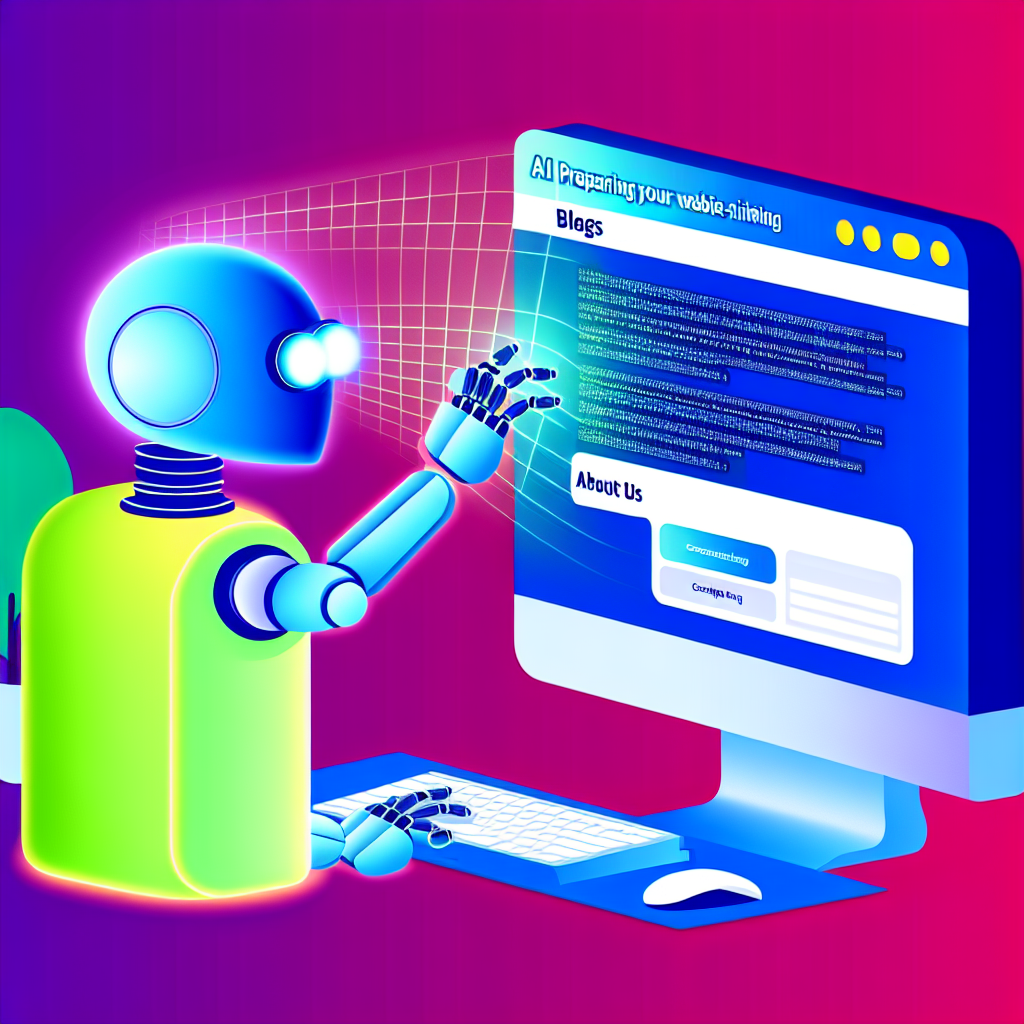The Future of AI in SEO: How Machine Learning is Transforming Search Strategy
Introduction
Search engine optimization (SEO) has undergone dramatic shifts in the last decade, but no change has been as transformative as the integration of artificial intelligence (AI) and machine learning (ML). With Google’s algorithm updates increasingly relying on AI-driven frameworks such as RankBrain, BERT, and the latest Search Generative Experience (SGE), marketing and SEO professionals must adapt their strategies to stay competitive.
AI’s role in SEO extends beyond search engine updates—businesses are leveraging machine learning to automate content creation, analyze search intent, and optimize technical SEO like never before. AI-driven tools are now critical for tasks such as advanced keyword research, predictive analytics, and personalized content recommendations.
For C-suite marketing leaders, the implications are vast. AI-driven SEO strategies offer data-backed insights that improve decision-making, streamline processes, and increase ROI. However, AI’s increasing prominence also introduces challenges, including how to balance automation with human-led strategy and ensure compliance with evolving algorithmic expectations.
As companies scale their SEO operations, the reliance on AI presents a double-edged sword: while it amplifies efficiency and precision, businesses that solely depend on AI without strategic oversight may face content devaluation due to Google’s emphasis on experience, expertise, authoritativeness, and trustworthiness (E-E-A-T).
This article explores how AI is transforming SEO, the latest research-backed advancements in machine learning-driven strategies, and how marketing executives and SEO professionals can harness these innovations for sustainable success.
How AI is Reshaping Search Engines and Ranking Algorithms
Google’s RankBrain, introduced in 2015, was the first major step toward AI-driven ranking systems, using machine learning to interpret search intent. Since then, advancements such as BERT (Bidirectional Encoder Representations from Transformers) and MUM (Multitask Unified Model) have significantly improved the ability of search engines to understand natural language and user queries [(Devlin et al., 2018)](https://arxiv.org/abs/1810.04805).
In the latest iteration of AI-driven search, the Search Generative Experience (SGE) combines AI-powered summaries with traditional search results, presenting users with synthesized insights rather than a simple ranked list of blue links [(Google, 2023)](https://blog.google/products/search/generative-ai-search/). This shift suggests a fundamental change in SEO, where content must not only target keywords but also contribute meaningfully to AI-curated SERP summaries.
AI-Driven Content Creation: Enhancing Efficiency Without Losing Authenticity
AI-generated content has rapidly matured with tools like OpenAI’s ChatGPT and Google’s Gemini, enabling marketers to produce blog posts, social media captions, and even highly personalized landing pages. However, a study published by the *Journal of Business Research* [(Haenlein & Kaplan, 2021)](https://www.sciencedirect.com/science/article/abs/pii/S0148296321005235) highlights the importance of combining human creativity with AI efficiency—while AI can generate SEO-optimized text, human oversight is key to safeguarding brand voice and originality.
Moreover, Google’s Helpful Content System penalizes content that is produced solely for ranking without adding real value. A 2023 study by *Search Engine Journal* [(Hollingsworth, 2023)](https://www.searchenginejournal.com/ai-content-seo-google-rankings/) concluded that top-performing AI-generated content still required human refinement to align with Google’s quality guidelines.
Predictive SEO: How AI is Revolutionizing Keyword and Search Intent Analysis
Machine learning is also transforming keyword research and search intent analysis. Google’s emphasis on “things, not strings” through its Knowledge Graph reinforces the need for semantically related content rather than keyword stuffing. AI tools such as Clearscope, Surfer SEO, and MarketMuse analyze competitor pages and suggest optimization techniques based on entity recognition and natural language processing (NLP) models.
A 2022 study in the *International Journal of Information Management* [(Kumar & Rana, 2022)](https://www.sciencedirect.com/science/article/abs/pii/S0268401222001965) found that AI-driven predictive analytics improved content performance by 37% when compared to traditional keyword research methods. These findings suggest that AI-powered algorithms help businesses align their content with user behavior and search trends more accurately.
The Challenges of AI-Driven SEO: Avoiding Common Pitfalls
While AI provides powerful automation and optimization tools, it also presents potential risks. The overreliance on AI-generated content can lead to decreased originality, and search engines are becoming adept at detecting low-quality automated material. In addition, ethical concerns related to misinformation and content bias remain critical issues for businesses using generative AI.
Google’s emphasis on E-E-A-T means businesses must integrate AI with subject-matter expertise, ensuring content strategies remain authoritative and trustworthy. Additionally, an AI-only approach to SEO without user engagement signals—such as dwell time and interactions—may lead to lower rankings.
Conclusion: Embracing AI While Maintaining a Human-Centric SEO Strategy
The future of AI in SEO is both exciting and disruptive. As search engines continue evolving with AI-driven frameworks, businesses must embrace machine learning-powered tools while maintaining a human-led strategy. AI will undoubtedly enhance search optimization through predictive analytics, content automation, and advanced keyword targeting, but marketing executives must adapt responsibly to ensure compliance, relevance, and authority in AI-enhanced search environments.
C-suite marketing leaders who integrate AI strategically—balancing automation with human oversight—will position their organizations at the forefront of digital discoverability. By focusing on high-quality, intent-driven content and leveraging AI insights for data-backed decision-making, businesses can future-proof their SEO strategies and remain competitive in an increasingly AI-dominated search landscape.
**Summary:**
The article explores how AI and machine learning are transforming search engine optimization (SEO) strategies. It covers the impact of AI-driven ranking algorithms, the opportunities and challenges of AI-generated content, the advancements in predictive SEO, and the need to balance automation with human expertise. The article emphasizes the importance for businesses to embrace AI-powered tools while maintaining a human-centric approach to SEO to ensure sustainable success in the evolving search landscape.

Dominic E. is a passionate filmmaker navigating the exciting intersection of art and science. By day, he delves into the complexities of the human body as a full-time medical writer, meticulously translating intricate medical concepts into accessible and engaging narratives. By night, he explores the boundless realm of cinematic storytelling, crafting narratives that evoke emotion and challenge perspectives.
Film Student and Full-time Medical Writer for ContentVendor.com
